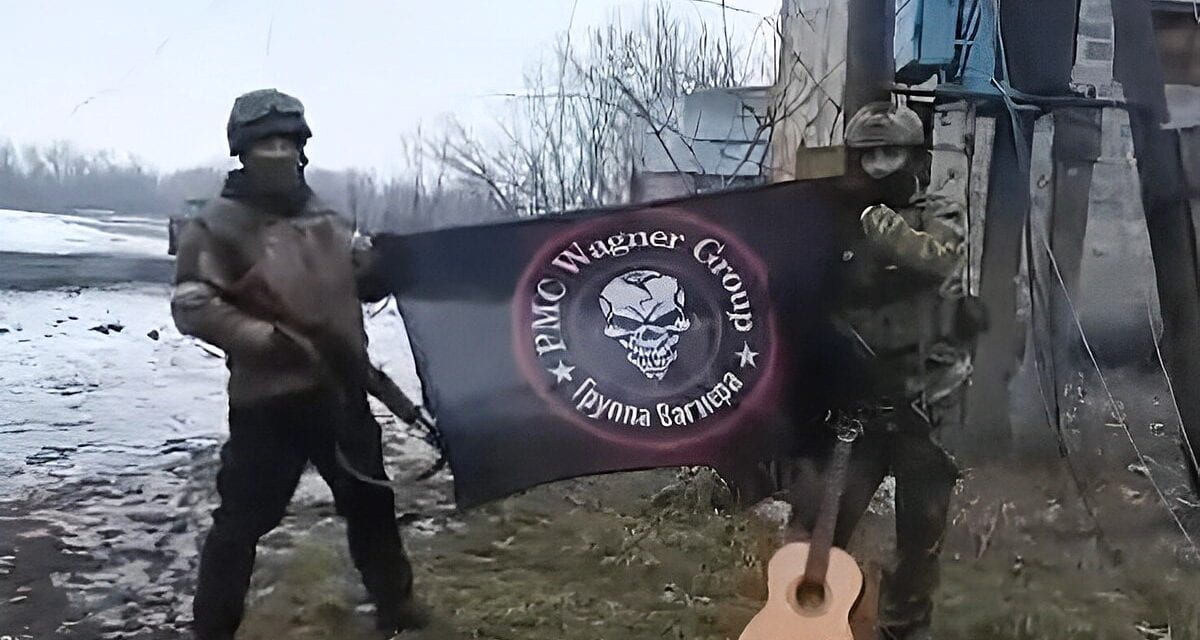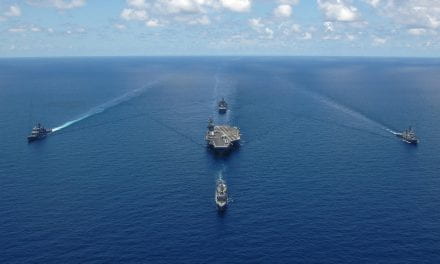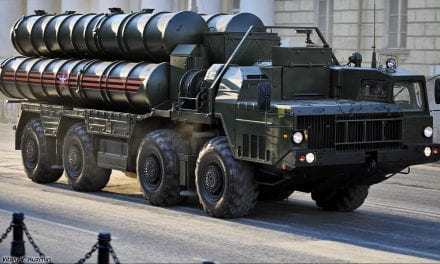On Friday, June 24, 2023, Russia faced what appeared to be its largest threat since Vladimir Putin assumed control as president. After nearly a year and a half of fighting between Russia and Ukraine—much of which has been practically spent in a stalemate—thousands of Wagner group mercenaries staged a mutiny against Putin.[i] In what has been deemed a ‘lightning insurrection,’ Wagner forces captured the city of Rostov in Southern Russia early Friday morning before traveling hundreds of miles north toward Moscow in just one day, reportedly destroying Russian blockades, helicopters, and fighter jets during the movement. However, Wagner leader Yevgeny Prigozhin announced a retreat of Wagner troops as part of a deal brokered by Belarusian President Alexander Lukashenko with Putin’s consent, avoiding potentially significant bloodshed and civil conflict. The Wagner group claimed to have advanced within 125 miles of Moscow before ending its attack.[ii]
While Russia potentially dodged institutional collapse, the Wagner insurrection demonstrates the power and volatility of private military contractors integrated within a state’s armed forces. The aggressiveness of Wagner forces thus raises concerns about the involvement of mercenary groups in state affairs: what political conditions allowed for such an uprising to take place in Russia, and do they exist elsewhere; why have private military groups become so prominent in recent decades; and how should the global community respond to the actions of the Wagner group and other mercenaries?
The “Rich” Background of Mercenary Armies
Private military and security companies (PMSCs) like the Wagner group have been hired to serve historic figures and world leaders for thousands of years.[iii] Early records of PMSC activity date back to 400 B.C.E. when Cyrus the Younger, the brother of Greek King Artaxerxes II, hired mercenaries known as the Ten Thousand in a failed attempt to usurp the throne. Before becoming the Pope’s protection detail, the Swiss Guard earned a reputation as one of the world’s best—and most expensive—mercenary groups. The Swiss Guard remains one of the oldest PMSCs in active service, as it formed during the Renaissance and participated in major events like the French Revolution.[iv] During the American Revolution, the British hired Hessian soldiers from German districts to replenish their military strength in Europe while its own soldiers fought in North America.[v] The famous WWII Flying Tigers are another notable historic PMSC, who in 1941 earned roughly triple the monthly salary of Air Force pilots in addition to a 500 USD bonus for each Japanese plane shot down—just shy of 9,500 USD adjusted for inflation.[vi] PMSCs have been involved in most major conflicts throughout history, and their integration into state affairs has only grown deeper.
Today, PMSCs remain the premium option for domestic and international security services. However, they have also been at the center of controversy in recent years. Blackwater, an American-based security firm that has earned hundreds of millions of dollars from the US government over numerous military procurement contracts, created national uproar in 2007 after mercenaries responsible for escorting a convoy of State Department officials killed 20 Iraqi civilians in Baghdad. The US and Iraqi governments could not corroborate reports detailing why this situation escalated, but the mercenaries involved were convicted on murder and manslaughter charges. President Trump pardoned them over a decade later. Blackwater has since restructured into Academi, transitioning its services toward technical training for military and law enforcement officers instead of security contracting. Nonetheless, its legacy remains shrouded by the 2007 Baghdad incident.[vii] Other PMSCs in the US and UK such as the Fort Defense Group Corporation, G4S, and MPRI (formerly known as Military Professional Resources Inc.) were hired to provide support to state armies in operations like Desert Storm, though the latter two PMSCs have also been accused of mistreating prisoners and participating in genocide.[viii]
Despite repeated instances of suspicious activity, PMSCs have largely evaded significant repercussions, and states like Russia depend on them to protect their interests. Each of the three major world powers—the US, Russia, and China—have relied on PMSCs in some way to achieve their respective foreign policy goals. Since PMSCs are not as closely connected to a state as its official army, state leaders may dodge political scrutiny by deploying them as opposed to their own militaries.[ix] However, Russia has grown much more dependent on PMSCs than any other state to achieve its goals overseas. Although it is a world power, Russia recognizes that it cannot win against its Western counterparts on its military strength alone, creating a higher demand for PMSCs to compensate for its own military shortcomings.[x] The Wagner group has been the main beneficiary of this unique relationship between Russia and PMSCs, allowing it to become especially powerful in the mercenary realm—despite the industry being outlawed by the Russian state.[xi]
Wagner’s Rise to Power – And Recent Fall
The Wagner group was first founded in 2014 by Prigozhin—a Russian oligarch—and Dmitry Urkin, a former officer in the Russian Military Intelligence Service. Wagner quickly started providing military support to Russia during its annexation of Crimea and the Donbas region.[xii] In the coming years, Wagner expanded considerably in size, power, and geographical outreach. With roughly five thousand trained operatives and access to Russian military infrastructure, Wagner has helped to protect regime leaders like Syrian President Assad and Faustin-Archange Touadéra of the Central African Republic (CAR), support armies in Libya, Mali, and Sudan, and oversee Russian disinformation campaigns, including the 2016 US presidential election.[xiii] Once Russia invaded Ukraine in 2022, Wagner spearheaded much of the attack efforts, ultimately claiming control of Bakhmut in April 2023, one month before Russian forces claimed victory in the Ukrainian city. A former Russian intelligence colonel compared Wagner’s aggressiveness and disregard for casualties in this operation to that of the Nazi Death Head division. At this point, tensions arose between Prigozhin and Russian military leadership about the transition of power from Wagner to Russian forces in Bakhmut, which ultimately escalated to the Wagner insurrection one month later.[xiv]
Reports cite a lack of financial and infrastructural support from the Russian Defense Ministry as the main reason why Wagner staged the June 24 mutiny. During the war in Ukraine, Russia refused a contract with Prigozhin’s catering company to feed the Wagner army, which Prigozhin cited as an indirect cause of thousands of Wagner casualties. Additionally, Prigozhin claimed that members of Russian military leadership were corrupt and inept, leading to unnecessary Wagner losses in Ukraine.[xv] Following the insurrection, Russia announced that Wagner would immediately cease fighting in Ukraine and stop receiving state funding. Since the announcement, thousands of pieces of Wagner military equipment have been seized by the Russian state. Prigozhin died in a plane crash on August 23, exactly two months after the mutiny began.[xvi]
Fallout: Lessons Learned
PMSCs are dangerous and unpredictable. The proliferation of PMSC forces in areas of active war and in post-conflict situations led state governments to regulate PMSC contracting processes over the last two decades, though mercenaries have exploited vague legal language and accountability gaps to increase their power. Wagner is a prime example of this: since Russia prohibits PMSC activity outside of domestic protective services, Russian PMSCs register in foreign countries to evade legal consequences for working with the Russian state, and Russia maintains deniability while these companies advance Russian national interests. Until state governments improve accountability measures and clarify definitions of PMSC activity to distinguish between private security companies and mercenary groups, more firms like Wagner will replicate its deceptive business model to maintain considerable leverage over totalitarian regimes and unstable democracies.[xvii]
The Wagner rebellion exposed the potential consequences of relying too heavily on private militants, not only for the client state but for the international community on a broad scale. The Russian regime will remain intact, save for some government officials who may take the blame for allowing the mutiny to erupt in the first place, though the incident was an embarrassment for Putin. Leaders of states connected to Putin where Wagner operated may reasonably be concerned about how tight Putin’s grip is on Russian domestic affairs, which could impede Russian diplomatic goals in the Central African region.[xviii] China likely perceives the mutiny as cause for concern as well and may begin to distance itself from Russia as Taiwan continues to leverage the Ukraine stalemate toward its own security interests.[xix] Regardless of the outlook for Russia in the short and long term, one critical takeaway must be recognized by the global community: PSMCs, if they continue to evade state and international laws, will remain volatile and a significant threat to the integrity of state affairs.
[i] Kartik Bommakanti, “The Ukraine-Russia Conflict Has Reached a Stalemate,” Observer Research Foundation, 2023, https://www.orfonline.org/expert-speak/the-ukraine-russia-conflict-has-reached-a-stalemate/; International Crisis Group, “Wagner Rebellion Explained,” International Crisis Group, June 27, 2023, https://www.crisisgroup.org/how-we-work/events/wagner-rebellion-explained.
[ii] Andrew Osborn et al., “Rebel Russian Mercenaries Turn Back Short of Moscow ‘to Avoid Bloodshed,’” Reuters, June 24, 2023, https://www.reuters.com/world/europe/wagner-head-suggests-his-mercenaries-headed-moscow-take-army-leadership-2023-06-24/.; International Crisis Group, “Wagner Rebellion Explained,” International Crisis Group, June 27, 2023, https://www.crisisgroup.org/how-we-work/events/wagner-rebellion-explained.
[iii] To date, there is no universally accepted definition of a mercenary. The terms ‘contractor,’ ‘private security company,’ and ‘mercenary’ are nuanced depending on an entity’s role, motive, location, and political goals. States carefully assign these terms to avoid legal trouble, but since I am not a government official justifying their usage, I use the terms interchangeably. For simplicity, I accept Dr. Sean McFate’s five characteristics that define a mercenary as presented to the UN OHCHR (Sean McFate, “Mercenaries and Privatized Warfare – Current Trends and Developments,” Office of the United Nations High Commissioner for Human Rights, 2020, https://www.ohchr.org/sites/default/files/Documents/issues/Mercenaries/WG/OtherStakeholders/sean-mcfate-submission.pdf.)
[iv] Evan Andrews, “6 Legendary Mercenary Armies from History,” History.com, 2023, https://www.history.com/news/6-legendary-mercenary-armies-from-history.
[v] American Battlefield Trust, “Hessians,” American Battlefield Trust, September 24, 2021, https://www.battlefields.org/learn/articles/hessians.
[vi] Evan Andrews, “6 Legendary Mercenary Armies.”
[vii] Silent Professionals, “Private Military Companies: Blackwater,” Silent Professionals, December 23, 2020, https://silentprofessionals.org/blackwater/.
[viii] Alex Kemeroff, “War for Money. Leading Private Military Companies of the World.,” Medium, February 16, 2018, https://medium.com/smartaim-tech/war-for-money-leading-private-military-companies-of-the-world-eab9f9fe2de8.
[ix] Christopher Kinsey, “Mercenaries and Private Military and Security Companies as State Instruments of Foreign Security Assistance,” The Mercenary, 2023, 182–218, https://doi.org/10.1093/oso/9780198872788.003.0007.
[x] Tom Sables, “Russian and US Military Firepower: A Comparison,” Forces Network, 2023, https://www.forces.net/news/russia-and-us-military-firepower-comparison.; Christopher Kinsey, “Mercenaries”.
[xi] Russian law forbids the existence of PSMCs, so technically, Wagner does not exist as a firm. Wagner operates through several shell corporations based outside of Russia, furthering the accountability between the mercenaries and the Russian state. (Jeffrey S. Thurnher, “Mercenaries on the Battlefield: What Legal Advisors Must Know,” Lieber Institute West Point, June 26, 2023, https://lieber.westpoint.edu/mercenaries-battlefield-legal-advisors/.)
[xii] Stanford Center for International Security and Cooperation, “Wagner Group: Organizational Overview,” Stanford Center for International Security and Cooperation, 2023, https://cisac.fsi.stanford.edu/mappingmilitants/profiles/wagner-group#_ftn80.
[xiii] William Rampe, “What Is Russia’s Wagner Group Doing in Africa?,” Council on Foreign Relations, May 23, 2023, https://www.cfr.org/in-brief/what-russias-wagner-group-doing-africa.; Stanford Center for International Security and Cooperation, “Wagner Group.”
[xiv] Stanford Center for International Security and Cooperation, “Wagner Group.”
[xv] Dasha Litvinova, “Armed Rebellion by Wagner Chief Prigozhin Underscores Erosion of Russian Legal System,” AP News, July 7, 2023, https://apnews.com/article/russia-prigozhin-wagner-mutiny-ukraine-putin-898d750e843aeb105a3c220bb917f606.; Thomas Graham, “Expect Changes in Russia as Response to Wagner Rebellion,” Council on Foreign Relations, June 24, 2023, https://www.cfr.org/in-brief/expect-changes-russia-response-wagner-rebellion.
[xvi] BBC News, “Wagner Boss Prigozhin Confirmed Dead in Plane Crash – Moscow,” BBC News, August 27, 2023, https://www.bbc.com/news/world-europe-66632924.
[xvii] Jovana Jezdimirovic Ranito and Christopher T. Mayer, “Normalization of Mercenary-like Private Military and Security Companies: The Need for Re-Securitization of Regulation,” International Politics 58, no. 5 (2021): 772–91, https://doi.org/10.1057/s41311-020-00271-3.
[xviii] Michael E. O’Hanlon et al., “What Is the Fallout of Russia’s Wagner Rebellion?” Brookings, August 30, 2023, https://www.brookings.edu/articles/what-is-the-fallout-of-russias-wagner-rebellion/; Thomas Graham, “Expect Changes in Russia.”
[xix] Michael E. O’Hanlon et al., “What Is the Fallout.”






